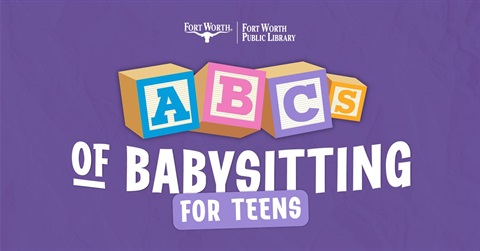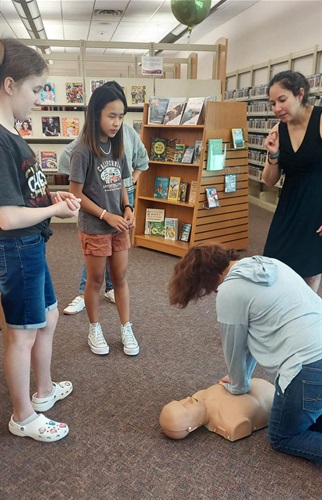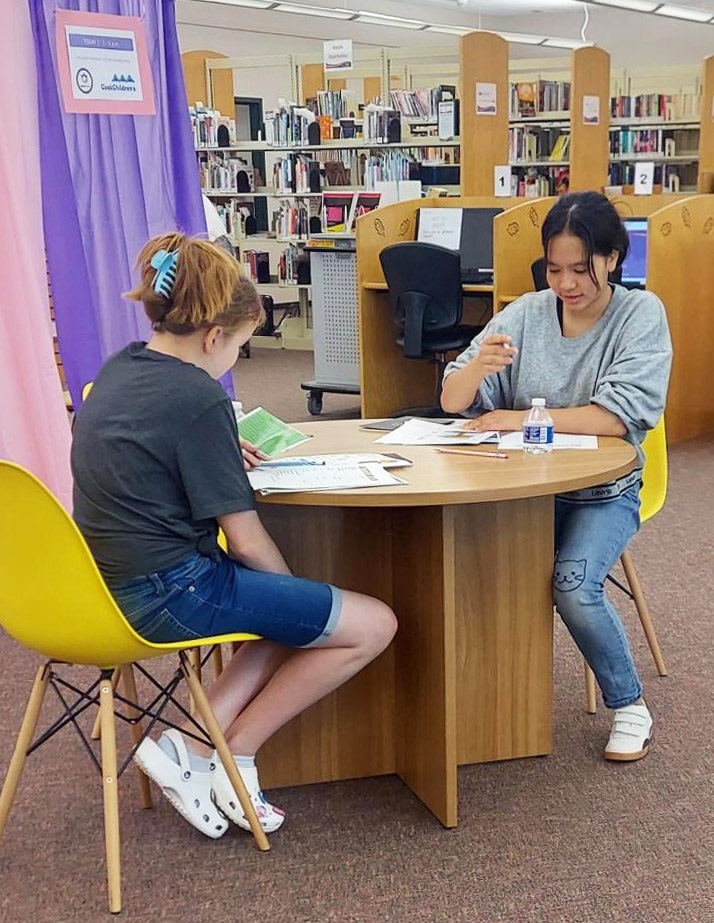Library offers workshop to build better babysitters
Published on July 06, 2023

After trying to wrangle an unruly kid for three hours, Lauren Graves was awarded 700 pennies.
“I had a child I was babysitting with behavioral issues. I didn’t know that going in,” Graves said. “We didn’t talk about cost, we didn’t talk about anything that was going on.” The $7 came from a jar of coins the mom had in her house.
A new Fort Worth Public Library program aims to change that this summer by offering tips that cover the care and business side of babysitting. The four-hour ABCs of Babysitting class is designed for teens and is slated to be offered at four libraries before the summer ends.
“Don’t be me,” said Graves, a Youth Services librarian. “Charge what you’re worth. If I’d known he hadn’t eaten, we could have had snack time right away. Knowing that going in could have been very helpful.”
Safety first
 Graves brings her real-world babysitting experience as well as having facilitated a similar program at her previous library job in Olathe, Kan. She is certified through the Safe Sitter program, and the Fort Worth program incorporates elements of that along with CPR training from Cook Children’s Hospital. Another component comes from the Library: tips and practice on entertaining and reading to children.
Graves brings her real-world babysitting experience as well as having facilitated a similar program at her previous library job in Olathe, Kan. She is certified through the Safe Sitter program, and the Fort Worth program incorporates elements of that along with CPR training from Cook Children’s Hospital. Another component comes from the Library: tips and practice on entertaining and reading to children.
Minerva Gates, Youth Services Program Coordinator, said the Library offered a similar program for aspiring babysitters before.
“The main reason we brought it back is to help working families,” Gates said. “We learned through a focus group that teens and preteens are often left the task of babysitting their younger siblings, especially in the summer season. We want to help families and their teens/preteens be prepared for such an important responsibility. We also learned from teens themselves that they wanted to earn income during school breaks by babysitting. They just do not know where to start.”
Gates said she hopes those who attend the workshop will take with them a basic understanding of child development and the positive impact they can have on the brain development of a child in their care. The tips on how to keep children safe and entertained are also important, she said, as well as how to successfully make money doing it. Some might even follow a career in early childhood caregiving or – with story time components in hand – become librarians.
Ask the right questions
So far, Graves has taught two sessions of the class, with 18 attending the one at the Golden Triangle Branch Library and four at Summerglen. She’s seen three main types of participants emerge: some who are really focused on the childcare portion, some who are eyeing a career as a nurse, and those who are focusing more on babysitting as a business. Whatever the goal, everyone is exposed to the training for all three. Some are also wanting to take better care for siblings.
Christina Granados, public education specialist, said among tools is a checklist on what a babysitter should ask parents before taking the job. That includes parent contact information, whether a child has allergies, if there are house rules that need to be consistently followed. “All of those are details I wouldn’t have thought to cover as a middle school or high schooler,” she said. “I was too nervous to have the conversation.”
The class, Granados said, allows teens to practice those conversational skills important conversational skills.
Each participant will receive a toolkit that includes a checklist and resources for crafts and activities, which also would have made a difference for her, she said. There are similar kits also available for checkout that include books and activities.
Fast friends
 For those who can’t make a class this summer, plans are already in the works to repeat the program in the fall, with expansions and changes planned to make it easier to share babysitting knowledge.
For those who can’t make a class this summer, plans are already in the works to repeat the program in the fall, with expansions and changes planned to make it easier to share babysitting knowledge.
Graves said her favorite thing to see is participants transforming from quiet individuals to a more vocal group.
“They’re coming together for the first time, they don’t know each other,” she said. “By the end of that four hours, they’re talking to each other, they’ve made friends in the class. They have their own little network. They come in and they’re quiet, and by the end they feel really confident in their ability to use these skills, their ability to save a life, and they’ve made friends.”